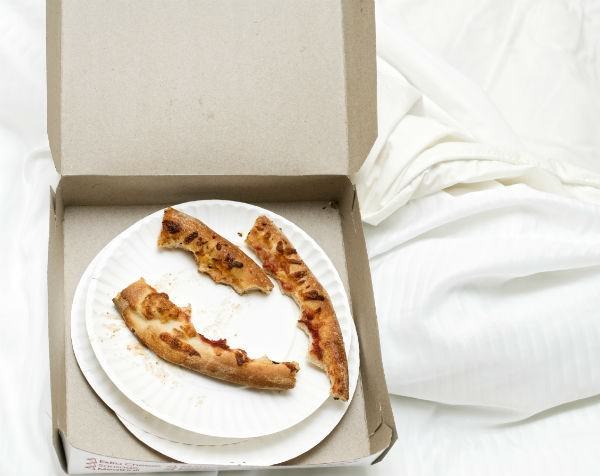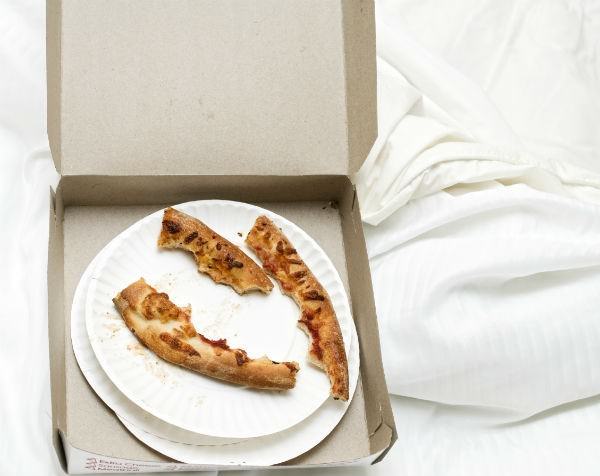The rise of restaurant delivery startups – StartupSmart

Late last year, global food delivery service Deliveroo muscled into the Australian market with millions of dollars in new funding to join the ranks of existing operators including Menulog and Suppertime.
All these companies allow customers to purchase meals online and have them delivered to their door, all within a few clicks.
Technology giant Uber is also eyeing off a slice of the market, with its food delivery service UberEATS launching in Melbourne in the next few weeks.
It will be the first time UberEATS has operated outside the United States, proving Australians are literally hungry for a delicious meal delivered straight to their door.
The local on-demand food delivery market is a lucrative one, if recent deals in the sector are anything to go by.
In May 2015,UK-based takeaway food delivery platform Just Eat will bought out local rival Menulog for $855 million cash. At the time the Menulog group had 5500 unique restaurants and 1.4 million active customers.
Another international player Delivery Hero acquired local startup Suppertime in October 2015, although the value of the transaction was not disclosed.
Food delivery services didn’t just spring up overnight
David Berger, co-founder and chief operating officer of Suppertime, told SmartCompany restaurant delivery services have come a long way in the past 10 years.
People who live or work in the Sydney or Melbourne CBD will recognise Suppertime as the brand with smartphone-wielding cyclists zipping from restaurant to restaurant.
However, back in 1985 when the company first started out, Suppertime was a very different business.
“In the beginning, Suppertime was really only available to people working back late in the city,” Berger says.
“They didn’t order through a website, they ordered through an excel spreadsheet and it was very manual. That’s when we released there was a demand for what we were doing.
“My business partner and myself acquired the business around 10 years ago and at the time, Suppertime was just a logistics provider.”
UberEATS also didn’t just spring up overnight. Instead, the service is an offshoot of Uber’s original business model that aims to take people from point A to point B with a seamless end-to-end customer experience.
The challenges facing food delivery services
Berger says the biggest challenge for companies like his is delivering the food on time.
Suppertime, for example, promises to deliver restaurant-quality meals within 30 minutes.
Other companies work to a similar model, generally delivering meals within half an hour to an hour.
“You obviously have to have your operations finely tuned,” Berger says.
“In our business, the key metric is delivery time. To organise your logistics network to deliver a constantly good delivery time is a huge challenge.”
Despite the vast majority of transactions occurring without any issue whatsoever, Berger says mistakes do occasionally happen – just like in any other business.
This could be because of an unexpected delay at the restaurant, or a courier getting stuck in traffic.
“In those situations, you have the best opportunity to win over a loyal customer by just going above and beyond,” Berger says.
“It’s not unusual for myself or a few managing directors to get onto the phone to a customer to personally apologise and let them know we let them down and we care about it.”
What consumers can expect in the near future
As for what lies ahead for food delivery services, Berger says he thinks more and more people will start ordering food for their office lunches rather than just dinner at home.
The Suppertime co-founder also suspects there will be more diversity when it comes to food choices in the coming months.
“Typically, your only options were pizza and Thai, Indian and Chinese,” Berger says when reflecting on how much the food delivery industry has changed over the past few years.
“With what we’re doing, we’re changing people’s perceptions about home delivery. Home delivery is no longer something you do and feel bad about. It’s now something you can do and feel good about it – ordering healthy food and having it delivered fast.”
Berger also predicts customers will begin purchasing from their mobiles more frequently.
“We see the future for this sort of business very app-based as it provides a better experience for the customer,” he says.
“In this day and age, you need to think mobile first.”
So should small food businesses jump into bed with a delivery service?
James Eling, the managing director of Marketing 4 Restaurants, told SmartCompany SMEs in the restaurant and takeaway food market should use a delivery service if it is the best way for them to attract new business.
“We think restaurants should use services like Menulog if it’s going to bring new customers to them,” Eling says.
However Eling points out successful restaurants don’t just rely on delivery services as their sole source of marketing.
It’s best for restaurants to build up their own loyal following online and by encouraging walk-ins, according to Eling, as this can help guard against any potential dips in orders through their delivery service of choice.
“What they [some delivery services] are doing is introducing a platform where a restaurant can bid for orders,” Eling says.
“This is quite scary, because you could be getting $2000 in orders a night, but if someone is saying they are willing to put a 15% commission on their orders, Menulog could put them higher up in the search rankings.”
Eling says it’s also important for restaurants to retain their customers’ details and just have them stored with a third party.
“There’s restaurants out there doing great things with their own marketing, and they’re flat out on a Tuesday night because of an email they send out,” Eling says.
SmartCompany contacted Menulog but the company declined to be interviewed for this article.
This piece was originally published on SmartCompany.

